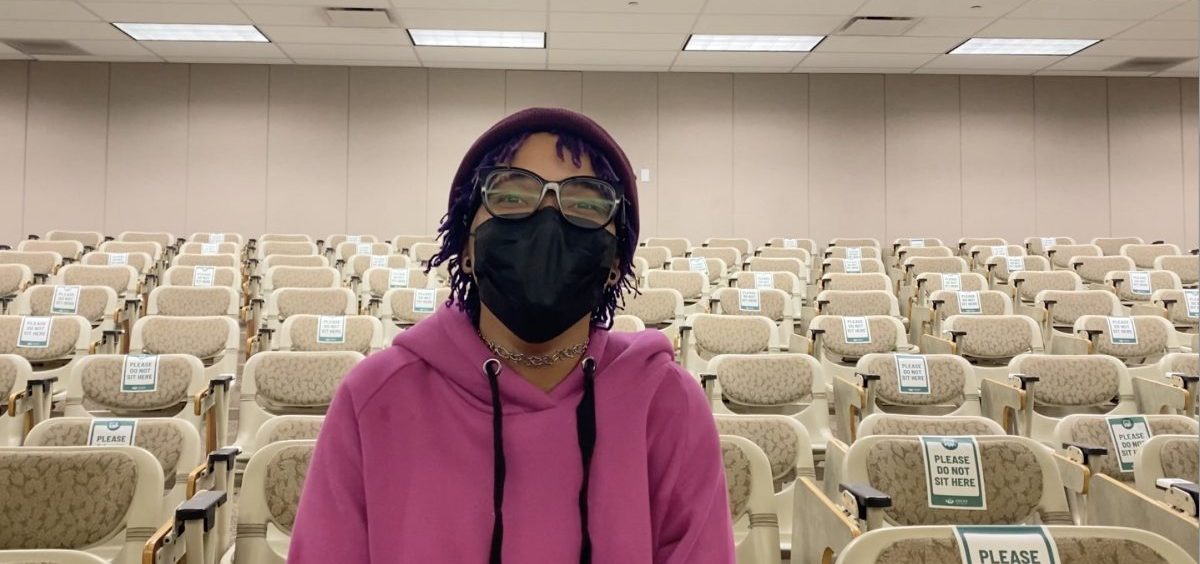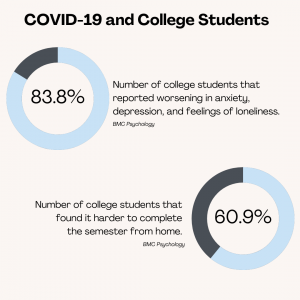
University Students Still Coping with Impact of COVID
By: Jordan Schmitt
Posted on:
ATHENS, Ohio – From filling essential jobs in healthcare, to suddenly having to complete classes from their bedrooms, college students have faced challenges like never before.
Alyssa Goodenow of Akron, worked in the high-pressure environment of a nursing home throughout the pandemic.
“At the beginning I think everybody took it very seriously,” Goodenow said. “As the months went along, people started to get more relaxed. Most people my age did not work in a nursing home, so I had that extra responsibility of ‘I can’t go out and bend the rules,’ I have to be extra cautious because I obviously want to keep in mind the health of my residents.”
Goodenow described the precautions in place at the Hartville nursing home, which included three-times-a-day screenings, temperature checks, masks and face shields, and full gowns when entering a patient’s room.
Alaina Falbo, 21, of Pittsburgh, worked as a nurses’ aid.
“It was definitely kind of eerie to work in the hospital at that time,” Falbo said. “I don’t think any of us who worked in the hospital knew what was happening, and kind of had to take each day one at a time and go from there. I didn’t necessarily feel safe, but I don’t know if anybody really did.”
Dr. Rebekah Crawford is a professor in Ohio University’s College of Health Sciences and Professions. She said students were also stressed by the politicization that came with the pandemic.
“And it got really polarized. I think a lot of people were stressed out and afraid. It really drove a lot of conflict, and a ton of conflict was happening in those workplaces,” she said. “One thing that I saw specifically repeated by students that had to work, was the extra stress and responsibilities for enforcing pandemic protocols when they didn’t have the power or the authority to really do so.”
The divisiveness of the lock down caused stress even with student working in non-essential jobs.
Ohio University senior Emilie Burch held two jobs: as a delivery driver for Insomnia Cookies and as a cashier at Target.
“People were just nasty and inconsiderate of wearing masks and safety protocols,” she said.
“A lot of it, of course, split along political and cultural lines,” Crawford explained. “Everybody felt things that they valued were under threat, but they just interpreted it differently. On one side you have people talking about health and safety, and the virus is a threat that needs to be managed. On the other hand, you have people who are talking a lot about individual freedom, and they see the government and government overreach as a threat. In order to make that argument that had to minimize the threat of the virus.”
Mental health impacts
Beyond the work environment, Crawford said she found that the isolation of the lock down had a detrimental impact on students’ mental health.
Naila Latham, 21, of Ellenwood, Georgia said her anxiety worsened throughout the pandemic. Latham said she struggles with asthma, causing her to be increasingly vulnerable to the virus.
“I was worried for my physical and mental health,” Latham said. “I already had anxiety, but I found that I had depression too – it brought out being depressed during the pandemic.”
Latham stayed in Athens rather than traveling to her hometown because of the pandemic.
“I think we are going to be terrible communicators by the time this is over,” Latham said. “I’m still anxious to talk to people after being in a room looking at a TV or a computer all the time. Not having to show my face – I don’t like people seeing my face now.”
“My mental health was definitely not great,” she said. “I struggled not having any interaction with friends. I had a hard time not having any social interaction besides going to work and coming home to my family.

